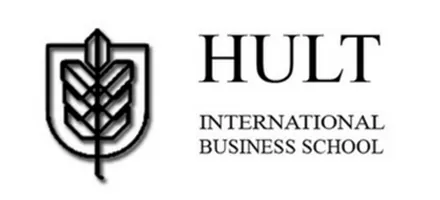
University of Georgia Terry College of Business
2025 METHOGOLICAL UPDATES
A total of 104 schools participated in 2025’s ranking – the most ever and 13 more than ranked in 2024. That includes 19 participating schools who did not participate in 2024’s ranking, and six who were ranked last year but did not fill out our institutional survey for 2025.
That in and of itself has shaken results of the ranking, particularly toward the middle and lower ends. We also made several changes to this year’s methodology to, hopefully, better gauge the quality of programs’ incoming students.
P&Q’s undergraduate business school ranking is based on three categories we believe best measure the undergrad B-school experience: the quality and diversity of students enrolling in a program (Admissions Standards); the ability of a B-school to nurture, challenge, and grow those young minds (Academic Experience); and how the market and world’s top employers respond to those graduates when leaving the school (Career Outcomes). Each category is given an equal weight in the final score of 33.3%.
Within each of those categories, we look at a number of metrics with varying weights of importance. Through the years, we’ve adjusted metrics and weights based on school feedback and changes in admission practices. This year, we made a few key changes in the Admissions Standards category.
Admissions data is gathered through our institutional survey that each school completed between July 2024 and January 2025. This year, we added two new metrics: 6-year graduation rate (weighted 20% of the category) and average high school GPA of the incoming class (weighted 15%). We also eliminated a metric used in 2024: The percent of incoming freshmen who were National Merit Scholars. (Read about changes to the 2025 methodology in more detail in this story.)
Other Admissions Standards metrics include acceptance rate of the incoming class, average SAT/ACT scores, percent of incoming class that were in the top 10% of their high school class, and the percent of the incoming class that are female, international, underrepresented minorities, and first-generation college students.
Career data is also collected through the institutional survey. Metrics include internship rate, employment rate, and average first-year compensation after graduation.
Academic Experience data comes entirely from the alumni survey, also administered between July 2024 and January 2025. This year we surveyed students from the Class of 2022, or those graduating between July 1, 2021 and June 30, 2022. We averaged the results of this year’s survey with the average from the two previous classes – giving 50% weight to the Class of 2022 and 25% each to the other classes.
We found that alumni surveys can vary wildly year to year if a single class of graduates was happy or unhappy. While there are still swings from the alumni survey, averaging three years of alumni response data helps cut down on the most dramatic swings.
To get full credit for the data collected in the alumni survey, we require a 10% or higher response rate from the surveyed class. We award schools their alumni data based on a sliding scale reflecting their alumni response rates. For example, a 10% or higher response rate earns 100% of alumni data, a 9.43% response rate earns 94.3% of the total alumni data, and so on.
This year, ten schools did not meet the 10% minimum response threshold and so did not get full credit for their alumni scores. That compares to seven schools who didn’t meet the response threshold in 2024.
2025’s HIGH RISERS
Six schools had double-digit rises in our ranking in 2025 compared to the prior year, but none rose higher than University of Georgia Terry College of Business. It rose 31 points this year on top of the 15 spots it rose in 2024. The school, located in Athens, Ga., ranked 79th in 2023 and 33rd in 2025. Much of the rise comes in the Academic Experience category after meeting our 10% response threshold on the alumni survey three years in a row.
Terry previously missed the threshold in 2022 and, by the methodology at the time, did not get credit for its alumni responses. That carried over to our three-year alumni class average in 2024. We’ve since changed the methodology to give schools credit for their alumni response on a sliding scale if they don’t meet the threshold.
William & Mary University’s Raymond A. Mason School of Business is in a similar boat after it also did not meet the alumni response threshold in 2022. Now that it has met the threshold for three straight years, it rose 28 spots this year and 20 last year, jumping from No. 68 in 2023 to No. 20 in 2025.
Terry also rose several spots this year in Admission Standards, jumping from No. 36 (out of 91 ranked programs) in 2024 to No. 27 (out of 104 programs) in 2025. The school reported a 43% admission rate for its fall 2024 incoming class and a 6-year graduation rate of 96.7% – the seventh highest rate in the ranking. Terry ranked 52nd in Career Outcomes this year, compared to 40th in 2024.
Mason ranked highest in 2025 in Admission Standards, finishing in 16th out of 104 ranked programs. It finished 15th out of 91 ranked programs the year before. It also finished 33rd in Career Outcomes this year, the same place as the previous ranking.
BIGGEST JUMPS AND DIVES OF 2025 |
|||
Biggest Jumps |
|||
| 2025 Rank | School | 2024 Rank | YOY Change |
| 33 | University of Georgia (Terry) | 64 | 31 |
| 20 | William & Mary (Mason) | 48 | 28 |
| 10 | Carnegie Mellon University (Tepper) | 29 | 19 |
| 18 | Wake Forest University | 33 | 15 |
| 42 | Worcester Polytechnic Institute | 56 | 14 |
| 52 | University of Delaware (Lerner) | 65 | 13 |
Biggest Dives |
|||
| 2025 Rank | School | 2024 Rank | YOY Change |
| 53 | University of Tennessee (Haslam) | 35 | -18 |
| 67 | Saint Louis University (Chaifetz) | 49 | -18 |
| 61 | Florida Southern College (Barnett) | 42 | -19 |
| 90 | University of Michigan-Dearborn | 71 | -19 |
| 72 | Hult International Business School | 38 | -34 |
| 81 | University of Denver (Daniels) | 45 | -36 |
University of Denver Daniels College of Business dropped the furthest in this year’s ranking. Its biggest drop came in the Admission Standards category, which also had the most methodological changes year over year. But, the school’s reported data for several of the Admissions metrics were lower than the data they reported for 2024.
For example, its reported acceptance rate for fall 2024 (accounting for 25% of the category score) was 69.8% for this ranking compared to 57.4% in the prior cycle. That was enough to drop it from 55th in the metric in 2024 to 80th in this ranking. It also reported an average SAT score (1333) that was about 40 points lower than prior incoming class, causing it to drop from 32nd in the metric to 67th.
For Career Outcomes, the school also reported a full-time employment rate of 73.6% for 2024 grads, down from 86.7% for 2023 grads. It fell in that metric to 97th, compared to 68th in 2024.
Overall Denver Daniels finished 74th out of 104 ranked programs in Admission Standards, 84th in Career Outcomes, and 79th in Academic Experience (as measured by our alumni survey.)
Hult International Business School had the second largest drop in the 2025 ranking. It finished 84th in Admission Standards (compared to 30th in 2024) and 87th in Career Outcomes (compared to 77th in 2024.) Its alumni survey, on the other hand, lifted it to a No. 26 finish for Academic Experience.
A TROVE OF DATA ONLY FOUND HERE
We at Poets&Quants have always considered this project more than just a ranking. With thousands of data points collected from schools and alumni, it’s essentially the largest data reporting project we undertake.
And this year, like all previous years, we gathered loads of interesting data reflecting the state of undergraduate business education in the U.S. For example, it’s still very difficult to get into a top business school. Ten schools had an acceptance rate of 10% or lower for students entering in the Fall of 2024. The Wharton School was again the hardest school to get into, with an acceptance rate of 4.5%
Five schools admitted classes that had an average SAT score of at least 1500, with Cornell University (Dyson SC Johnson) and New York University’s Stern School of Business leading the way with an average score of 1540.
And, six schools reported first-year compensation packages of more than $100K for 2024 graduates. That includes the first-year salary and signing bonuses. Wharton grads led the way with an adjusted compensation of more than $120,000.
All 104 undergraduate business programs ranked by Poets&Quants are at the leading edge of business education, delivering a learning experience that transforms students’ sense of who they are and what they can do in the world. In fact, the ranked schools in this report reflect the top 12% of the more than 840 business schools accredited by AACSB International, the main accrediting body for business education.
The full ranking is presented in the following pages, along with a more detailed look at how every school fared in our three ranking categories. As always, in the next several days, we will publish even closer looks at many more metrics to offer the most comprehensive guide possible to prospective business school students evaluating their preferred schools. Some of these metrics are used directly in our methodology, some are not. Stay tuned for in-depth stories on acceptance rates, total compensation for first-year graduates, cost of top-ranked b-schools and more.
Page 3: Admission Standards rank
Page 4: Career Outcomes rank
Page 5: Academic Experience rank
Page 6: Final P&Q ranking of 2025











